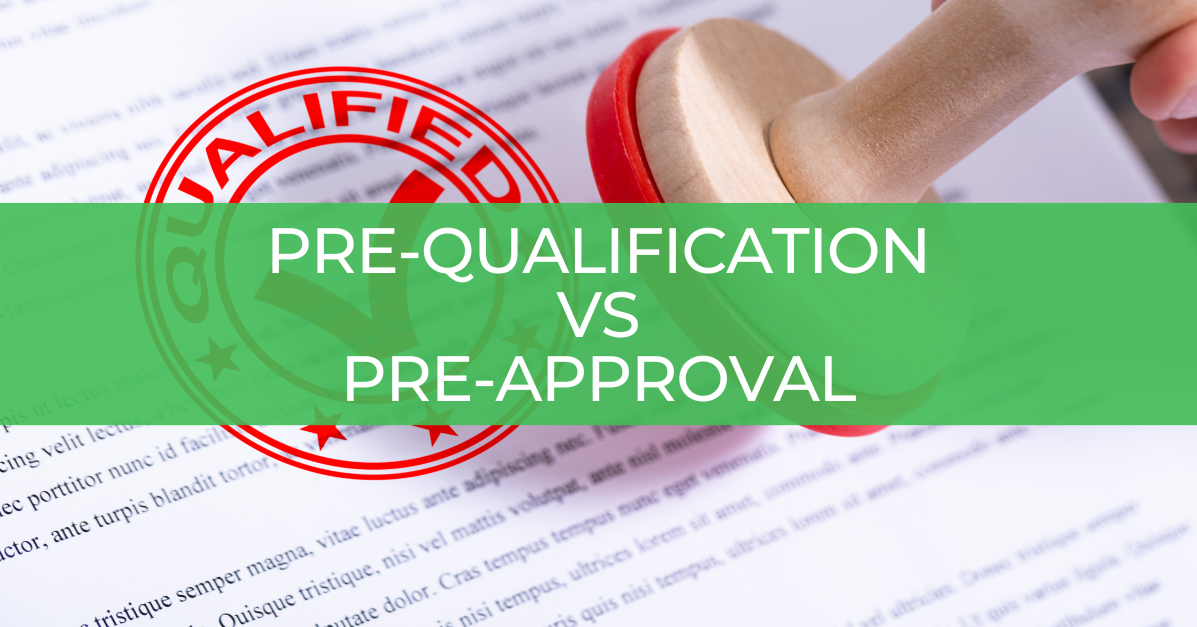
Getting Pre-Qualified/Pre-Approved to Buy a Home
What is Pre-Approval/Pre-Qualification?
A Pre-Qualification letter is one of the most important documents you need when shopping for a home. Some real estate agents will not even show you houses without one. Certain states require buyers to have one submitted with a purchase offer. E5 Home Loans helps explain the difference between a “pre-qualification” and a “pre-approval,” as well as all the information required to obtain one.
Pre-qualification can be simple, but it can also be a very involved process. It can take a day or a couple of months, depending on your financial situation and how promptly you provide your information to a loan originator.
The process begins with a conversation or filling out an online application. The loan officer reviews your current housing, income, assets, and credit situation, as well as your purchase goals. This includes your permission to pull a credit report. You then submit the requested documents to your loan officer for verification.
Some of the most commonly requested documents are:
- Copy of driver’s license or other acceptable photo ID
- Paycheck stubs covering the past 30 days
- W2s or 1099s for the most recent year or two
- Bank statements of all accounts including checking, savings, stocks, IRAs, 401Ks, etc. for the most recent two months or last quarter
Special cases may require:
- Federal tax returns (Form 1040) with all schedules & forms for the most recent year or two
- Benefit/Award letter for pensions, Social Security, disability, etc.
Your loan qualification is based on a number of factors, of which the most important criteria include:
Income
Lenders require documentation of steady income. Every case is unique, so speak with a licensed loan officer about your situation. Typically, loans require a 2- year history and a resonable expectation the income will continue for 3 years. The 3-year continuance expectation is an important factor in divorce situations where spousal/child support is being claimed as income.
FICO score
All lenders require a credit report. Typically, lenders run a tri-merge report to pull scores from the 3 credit bureaus. Of those 3, the middle score is the qualifying score. Different loan programs have different minimum score requirements. In addition to qualifying, the FICO score also impacts the available interest rate (read more about credit scores).
Your credit report also provides any derogatory credit events, such as foreclosures, bankruptcies, charge-offs, delinquencies, or other judgments which can prevent qualification.
Lastly, your credit report details your monthly liabilities or debts. The report shows lenders if you pay on time and how much you owe each month, which leads to the next consideration, your debt-to-income ratio.
Debt-to-Income (DTI) Ratio
Most loan programs have a maximum ratio for your expenses (monthly revolving debt and loan payments, including your proposed housing payment) as a percentage of your monthly income. The most popular loan programs have a maximum DTI ratio between 43% – 45%. For more detail on what counts in your ratio, read more about DTI.
Down Payment Funds
Lenders must verify the source of any funds for a down payment. Sources may include a bank/investment account, the equity from the sale of a current home, or a “gift”, which are funds given to you from an outside source. There are other sources for your down payment, but it is best to discuss these with a licensed loan officer. Cash on hand is usually not an acceptable source. Money must be either sourced or seasoned.
Once your loan officer reviews all your information, they will put together a pre-qualification letter, letting you and your real estate agent know how much you qualify to spend on a home. Being pre-qualified does not guarantee you a loan. It just means you meet the qualifications for a loan. Pending review by an underwriter, a formal approval will follow.
Why would someone want a “Pre-Approval?”
Some loan applications are not simple. Such as, buyers may be self-employed, have multiple income sources, or gaps in employment in the past two years. In more complex situations, a loan officer sometimes recommends a “pre-approval.” This may also occur prior to shopping in order to strengthen a buyer’s credibility for a purchase offer in a competitive situation.
Getting pre-approved involves submitting a complete loan file (excluding specific property information) to an underwriter for review. If the underwriter approves the file and proposed loan amount, the loan should receive final approval once a contract is signed. The final loan approval is contingent on a review of the property information and assumes no material changes to income, assets or credit since the pre-approval.
Ask your lender if a pre-qualification or pre-approval is the best option for your scenario. Contact E5 Home Loans to start the process or see what you could qualify to borrow. Even if you have previously been denied a pre-qualification, get a Second Opinion with E5 Home Loans. E5 shops loan products across many lenders and we don’t charge a bunch of crazy fees.
